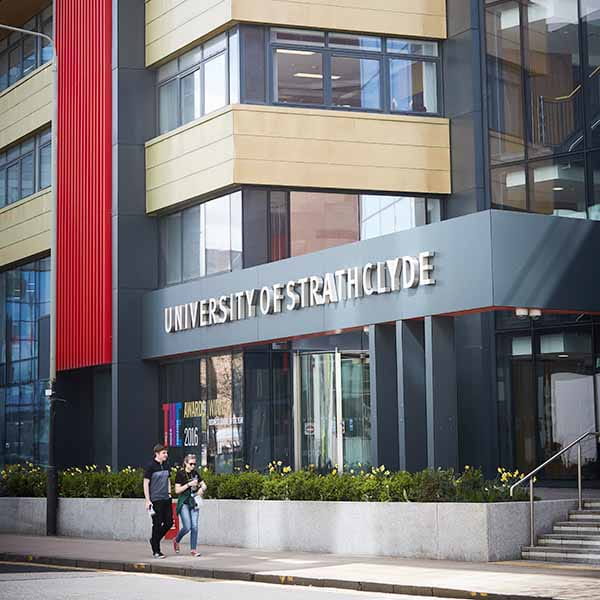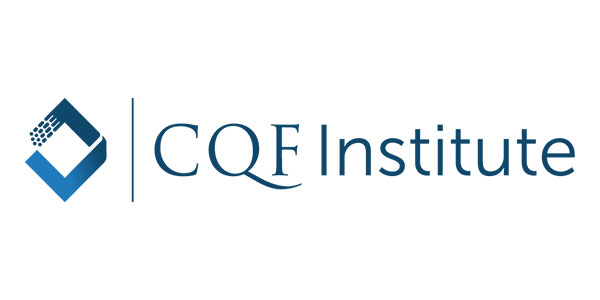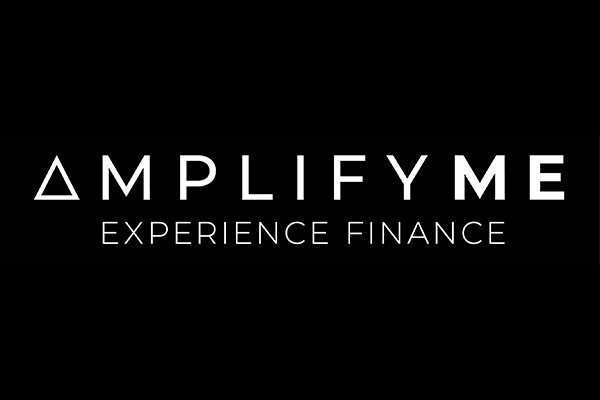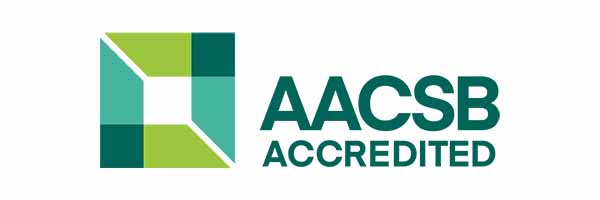MSc Financial Technology
ApplyKey facts
- Start date: September
- Accreditation: AACSB, EQUIS & AMBA
- Application deadline: September
- Study mode and duration: MSc: 12 months, full-time
Study with us
- combine the study of theory with intensive practice and industrial engagement
- understanding how the use of technology improves the efficiency of financial transactions
- undertake two research projects, one in Finance and one in Management Science
- gain invaluable practical experience of the factors that drive today’s financial markets at AmplifyME Boot Camp
The Place of Useful Learning
UK University of the Year
Daily Mail University of the Year Awards 2026
Scottish University of the Year
The Sunday Times' Good University Guide 2026
Why this course?
This MSc in Financial Technology (FinTech) teaches the big data techniques, computer programming, and analytics that banks and insurance companies are looking for. Graduates in this field will have a good understanding of the changing nature of finance and how accounting, business information systems, and analytic methods are adapting to the internet as a delivery channel.
The course is provided jointly by the top-ranked Departments of Accounting & Finance and Management Science with input from Computer & Information Science.
Strathclyde Business School
Strathclyde Business School (SBS) was founded in 1948 and is a pioneering, internationally-renowned academic organisation with a reputation for research excellence. One of four faculties forming the University of Strathclyde, SBS has held triple accreditation from the three main business school accreditation bodies – AMBA, EQUIS and AACSB – since 2004. Our subject departments and specialist centres collaborate to provide a dynamic, fully-rounded and varied programme of specialist and cross-disciplinary courses.


Through the programme you'll:
The MSc Financial Technology develops expertise at the intersection of finance, data, and technology. This course will prepare you to contribute to responsible, secure, and innovative financial services across global markets. As a graduate, you will join an international community shaping the future of digital finance.
On this programme you will learn in-demand skills in programming, data analytics, financial modelling, and technology-enabled decision making.
You'll learn to frame real financial problems, apply rigorous analytical methods, and communicate insights. The course will prepare you for roles in fintech, banking, consulting, asset management and beyond.
Course content on this programme combines academic theory with practical application. You'll work on industry-relevant challenges, apply tools used in industry, and engage with current issues in digital finance, regulation, and innovation. The emphasis on working on real problems and applied analytics ensures you graduate ready to deliver value from day one in the workplace.
Through team projects and research-led assessments, you'll refine critical thinking, collaboration, and technical fluency skills. This programme encourages curiosity and experimentation, helping you develop the confidence to design, evaluate and implement data-driven financial solutions.
Strathclyde’s entrepreneurial environment supports new ideas and practical impact. You'll have opportunities to explore product innovation, intrapreneurship, and venture creation in financial technology, preparing you to lead change in established institutions or emerging fintech ventures.
You'll also have access to Strathclyde Inspire, a unique sector-leading initiative that supports and encourages all forms of entrepreneurship. This initiative will provide you with opportunities to develop an entrepreneurial mindset through access to a range of entrepreneurial activities should you wish.
What you'll study
The course is 12 months full-time, with two semesters of modules followed by two projects over the summer. You'll gain a comprehensive skill set using a blended learning approach that combines theory, intensive practice and engagement with FinTech start-ups. The course content will involve interaction with the Bloomberg Trading Simulation Laboratory in the Business School.
In Semesters 1 & 2 you'll take compulsory core modules, some of which are offered within our award-winning MSc Finance. You also select at least one elective from the list of modules in Accounting & Finance, Management Science and Computer Science.
Semester 1
You'll gain a fundamental understanding of finance and analytical methods within the context of big data developments in FinTech practice and application and learn about Python programming.
Semester 2
You'll extend your core skills, expand your knowledge of analytics methods, deepen your understanding of information systems and enhance your understanding of financial markets.
Summer projects
You undertake two research projects, one in Finance and one in Management Science. You'll submit your final work in September.
Learning & teaching
The programme is mainly taught through a combination of lectures, tutorials and computer labs.
The module Becoming an Effective Financial Technology Analyst focuses on experiential learning. Acting as clients, industrialists from the financial technology sector will introduce a series of business problems, outlining real problems on projects and cases that they have been involved in. Working in small groups, students will work in role of analysts/consultants with a brief of advising the client on how to tackle the problem.
Assessment
Assessment will vary across the modules but will include exams, written assignments, as well as practical team and individual projects.
Certificate in Quantitative Finance
The Certificate in Quantitative Finance is the largest professional qualification in quant finance and is recognized by financial companies worldwide. Strathclyde Business School is one of the few Universities recognised by the CQF Institute and our students can register as free members and have the opportunity to access the latest CQF Institute membership resources, including events, research, careers tools, workshops and thought leadership content.

AmplifyME Boot Camp
You can gain invaluable practical experience of the factors that drive today’s financial markets as part of your Master course. Amplify, a global financial trading and training company, in collaboration with Strathclyde Business School, delivers a week-long Boot Camp. This provides you with the opportunity to experience a real-life trading simulation, covering multiple roles in the process.
Amplify is a leading provider of training programmes to the financial industry, and they offer our students the same analyst level practical training they deliver to their clients. Amplify’s clients include Bank of China, Goldman Sachs, HSBC and Bank of America.
Note: the provider of this boot camp may be subject to change.

Triple-accredited business school
Core modules
Data Analytics for Accounting & Finance
Credits: 10
Assessment: final examination (50%) & individual assessment (50%)
This class aims to bridge the gap between theoretical finance and practical data analytics, preparing you for an increasingly data-driven financial services sector by equipping you with essential data analysis skills.
You will develop predictive models and use advanced tools such as machine learning, while learning how to present output as concise and interpretable visualisations. Emphasis will be placed on developing critical thinking as well as technical proficiency, with discussions concerning the treatment of incomplete data, the appropriate model and technique to use given different scenarios, and the ethical and privacy concerns of using large, novel datasets and machine learning models.
You will be required to effectively interpret and apply data insights across various contexts, including risk management, forecasting interpretation of accounts, and financial technology applications.
Programming for Fintech
Programming is taught to a level at which the knowledge can be useful to a financial professional.
Principles of Finance
This class provides an introduction to the basic principles of financial decision taking and the theory of finance. It will develop the basic principles of valuation, the nature of risk and uncertainty, and the relationship between risk and returns.
Quantitative Business Analysis
The first part provides an introduction to the basic theory and application of statistical modelling. Topics covered include:
- data analysis
- probability theory
- distributions and moments
- estimation
- hypothesis testing
The second part focuses mainly on two areas:
- regression modelling
- multivariate analysis
While key background theory will be presented, the emphasis is on the generation and interpretation of output from commercially available software.
Core modules
Sustainable Finance and Technology
This course uniquely encourages students to explore the nexus between sustainable finance and financial technology (FinTech). Students will be introduced to key concepts that define FinTech. The dynamic FinTech landscape will be navigated, outlining how a new ecosystem of financial services is evolving, with new innovative financial products and services being offered and new alternative markets being developed. Against the background of the global sustainability challenge and the critical need for mobilising sustainable finance, the role that FinTech can play as an enabler of this capital flow will be discussed.
Across areas such as crowdfunding and peer-to-business lending, cryptoassets and blockchain, and wealth management and roboadvisors, students will synthesise academic and industry evidence to evaluate the levels of investment currently being directed through FinTech enabled channels to fund sustainable companies and projects. Particular attention will be given to the area of Environmental, Social and Governance (ESG) investing and Socially Responsible Investing (SRI) and how technology can support this activity. The challenges of ESG measurement will be considered and financial data science applied to the problem of ESG scoring. Portfolio management demonstrations will be provided to students under emerging portfolio construction frameworks that seek to optimise across risk, return and ESG.
Business Information Systems
The class will build on the fundamental multivariate statistics by developing both visualisation and advanced analysis techniques relevant in the area of big data. The focus will be on application and interpretation of techniques and there will be an investigation of what makes good data. The class will develop both new theoretical knowledge in the form of analytics techniques as well as new software skills in relevant analytics software.
Becoming an Effective Technology Analyst
This class is led by industrialists in partnership with academics concerned with FinTech problems. The practical reality of applying analytical methods in financial technology business is often far removed from the classroom. While traditional teaching can alert students to such issues, understanding needs to be reinforced by experience, which is acquired in this module.
FinTech Innovations, Applications & Considerations
The aim of this class is to critically evaluate the underlying technologies and innovations emerging in fintech and explore the various potential applications and considerations in each case. By linking academic theory with practical use cases and industry speakers, the module aims to provide students with both a technical as well as a strategic overview of core technologies.
A proportion of this module will also focus on various considerations inherent in financial technologies, such as ethics, trust, security and built-in behavioural biases. Such considerations are important given the amount of personal financial data that is now generated, the increasing use of machine learning and artificial intelligence in financial services, and the number of new entrants into the banking industry.
Risk Management for Banks
The class employs some of the basic principles of financial analysis to consider the application of risk analysis. It explores issues relating to risk management in the banking sector, with a particular focus on the regulatory requirements stemming from the Basel Accord.
Elective modules
Choose three modules from the below. You must choose a minimum of one from Accounting & Finance and one from Management Science.
Accounting & Finance
Textual Analytics for Accounting & Finance
Credits: 10
Assessment: final examination (50%) & individual assessment (50%)
This module aims to equip you with the skills and knowledge necessary to leverage unstructured textual data in a financial context. As the financial services sector increasingly makes use of data-driven insights, you will be taught methods through which textual information from sources such as corporate reports, news articles, and social media can be analysed.
You will gain hands-on experience with basic qualitative software such as NVivo, before covering traditional textual analysis methods (such as dictionary and machine learning methods) before more recent and advanced natural language processing (NLP) is introduced, including transformer-based models such as BERT and large language models (LLMs). Through these methods, you will be able to extract sentiment, detect trends, and identify key patterns in financial texts, evaluating the relative benefits and drawbacks of each approach (for example, more recent methods lack explainability but offer greater accuracy).
The module will place emphasis on developing both technical and analytical skills, encouraging you to critically evaluate the accuracy, relevance, and limitations of textual data analysis in decision-making processes. Additionally, the module will address ethical considerations and challenges related to bias, transparency, and data privacy in text analytics, specifically in relation to relevant UK guidelines and regulation.
By the end of the module, you will be able to apply text analysis techniques to real-world business scenarios, enhancing your ability to provide data-driven insights and solutions within various professional finance settings.
Portfolio Theory & Management
The aim of this class is to examine the Markowitz (1952) approach to optimal portfolio selection. The class explores issues relating to optimal portfolio choice and issues in practical fund management. This would be useful for those who wish to specialise in Roboadivsors.
Derivatives
This class will provide you with a strong grounding in derivatives that may be used to manage the financial risks faced by individuals, financial institutions and business corporations. This would be useful for those who wish to focus on FinTech for market instruments.
Fixed Income Analysis
Credits: 10
Teaching: 15 hours of lectures
Assessment: class test (30%) and final examination (70%)
While fixed income securities (bonds) have been traded for a far longer time than equities, it's only recently that the trading volume of these instruments has exceeded that of equities in many of the economies with highly developed capital markets. The bond markets for the last 25 years or so have been characterised by rapid innovation and the range of bonds now being traded is quite diverse. Any graduate of an MSc programme in Finance is expected to be familiar with the nature of the valuation of bonds.
This module will put the MSc courses at Strathclyde in a position to provide students with the opportunity to analyse bonds and the markets in which they are traded in more depth than is possible at the moment.
Management Science
Stochastic Modelling for Analytics
This class introduces fundamental stochastic methods and techniques and then provides applications to large scale modelling. These methods are crucial for a better understanding of uncertainty and risk and these approaches are closely related to many important fields from forecasting to simulation.
Business Simulation Modelling
The class will focus on the main two forms of business simulation:
- discrete-event simulation (DES)
- system dynamics (a continuous simulation technique)
For DES, the class will start with an introduction, aiming to familiarise students with the concept and its use. For system dynamics the class will provide a background to system dynamics including its links to other modelling techniques.
Risk Analysis & Management
This class will explore the entire process of structuring a risk problem, modelling it, supporting and communicating recommendations, both theoretically and in practice.
Research projects
Prior to the start of the work on the projects classes are provided on research methodology for each project. These compulsory classes will provide the basis for the project work, the nature of research work in finance or accounting and the writing and structuring of research reports. The classes will not be assessed but attendance is compulsory.
Finance Project
The project allows the student to use all that they have learnt to specialise in an area of interest, delving much more deeply into it.
Management Science Project
This project uses management science techniques to solve a data problem.

Chat to a student ambassador
Want to know more about what it’s like to be a Strathclyde Business School student at the University of Strathclyde? A selection of our current students are here to help!
Our Unibuddy ambassadors can answer all the questions you may have about their course experiences and studying at Strathclyde, along with offering insight into life in Glasgow and Scotland.
Entry requirements
| Academic requirements | Minimum second-class Honours degree, or overseas equivalent (view the entry requirements for your country) in:
No prior knowledge of finance is required. |
|---|---|
| English language requirements | Students whose first language is not English must have a minimum of 6.5 IELTS score, with no individual score lower than 5.5. Get more information about the English language requirements for studying at Strathclyde. |
| Introductory sessions | You're required to attend introductory sessions in mid-September. |
Pre-Masters preparation course
The Pre-Masters Programme is a preparation course held at the University of Strathclyde International Study Centre, for international students (non-UK/Ireland) who do not meet the academic entry requirements for a Masters degree at University of Strathclyde.
Upon successful completion, you'll be able to progress to this degree course at the University of Strathclyde.
Fees & funding
All fees quoted are for full-time courses and per academic year unless stated otherwise.
Fees may be subject to updates to maintain accuracy. Tuition fees will be notified in your offer letter.
All fees are in £ sterling, unless otherwise stated, and may be subject to revision.
Annual revision of fees
Students on programmes of study of more than one year (or studying standalone modules) should be aware that the majority of fees will increase annually.
The University will take a range of factors into account, including, but not limited to, UK inflation, changes in delivery costs and changes in Scottish and/or UK Government funding. Changes in fees will be published on the University website in October each year for the following year of study and any annual increase will be capped at a maximum of 10% per year. This cap will apply to fees from 2026/27 onwards, which will not increase by more than 10% from the previous year for continuing students.
| Scotland | £16,050 |
|---|---|
| England, Wales & Northern Ireland | £16,050 All home fee status candidates who are given an offer of study on this programme, will be automatically offered our SBS Masters scholarship for Home/UK students. |
| Republic of Ireland |
If you are an Irish citizen and have been ordinary resident in the Republic of Ireland for the three years prior to the relevant date, and will be coming to Scotland for Educational purposes only, you will meet the criteria of England, Wales & Northern Ireland fee status. For more information and advice on tuition fee status, you can visit the UKCISA - International student advice and guidance - Scotland: fee status webpage. Find out more about the University of Strathclyde's fee assessments process. |
| International | £32,800 All international candidates who are given an offer of study on this programme, will be automatically offered our SBS International Masters scholarship, which is £8,000 for this programme. A separate application is required for our higher value Dean’s Excellence Award. |
| Additional costs | Course materialsTextbooks do vary in price from around £40 to £100. The majority are provided free in the library or via the Virtual Learning Environment platform. For budgeting purposes, we recommend allowing £200 per academic year for books. International studentsInternational students may have associated visa and immigration costs. Please see student visa guidance for more information. Other costs
|
| Available scholarships | Take a look at our Business School scholarships. |
Please note: the fees shown are annual and may be subject to an increase each year. Find out more about fees.
International students
We've a thriving international community with students coming here to study from over 140 countries across the world. Find out all you need to know about studying in Glasgow at Strathclyde and hear from students about their experiences.

How can I fund my course?
Scottish postgraduate students
Scottish postgraduate students may be able to apply for support from the Student Awards Agency Scotland (SAAS). The support is in the form of a tuition fee loan and for eligible students, a living cost loan. Find out more about the support and how to apply.
Don’t forget to check our scholarship search for more help with fees and funding.
Students coming from England
Students ordinarily resident in England may be to apply for postgraduate support from Student Finance England. The support is a loan of up to £10,280 which can be used for both tuition fees and living costs. Find out more about the support and how to apply.
Don’t forget to check our scholarship search for more help with fees and funding.
Students coming from Wales
Students ordinarily resident in Wales may be to apply for postgraduate support from Student Finance Wales. The support is a loan of up to £10,280 which can be used for both tuition fees and living costs. Find out more about the support and how to apply.
Don’t forget to check our scholarship search for more help with fees and funding.
Students coming from Northern Ireland
Postgraduate students who are ordinarily resident in Northern Ireland may be able to apply for support from Student Finance Northern Ireland. The support is a tuition fee loan of up to £5,500. Find out more about the support and how to apply.
Don’t forget to check our scholarship search for more help with fees and funding.
International students
We've a large range of scholarships available to help you fund your studies. Check our scholarship search for more help with fees and funding.
Glasgow is Scotland's biggest & most cosmopolitan city
Our campus is based right in the very heart of Glasgow. We're in the city centre, next to the Merchant City, both of which are great locations for sightseeing, shopping and socialising alongside your studies.

I chose Strathclyde because it's the number one school in the UK for Accounting & Finance by a couple of different rankings.
Careers
The course is tailored to make the graduates eminently employable in this exciting new field that cuts across traditional disciplinary boundaries.
Research indicates that students with programming, data analytics and finance skills get premium starting salaries compared to graduates from any one of these disciplines.
Apply
For information and guidance on the application process, take a look at our How to Apply web page.
Start date: Sep 2026
Financial Technology
Contact us
SBS Postgraduate Admissions
Telephone: +44 (0)141 553 6105 / +44 (0)141 553 6116
Email: sbs.admissions@strath.ac.uk
Strathclyde Business School, University of Strathclyde
199 Cathedral Street
Glasgow
G4 0QU
Have you considered?
We've a range of postgraduate taught and Masters courses similar to this one which may also be of interest.




